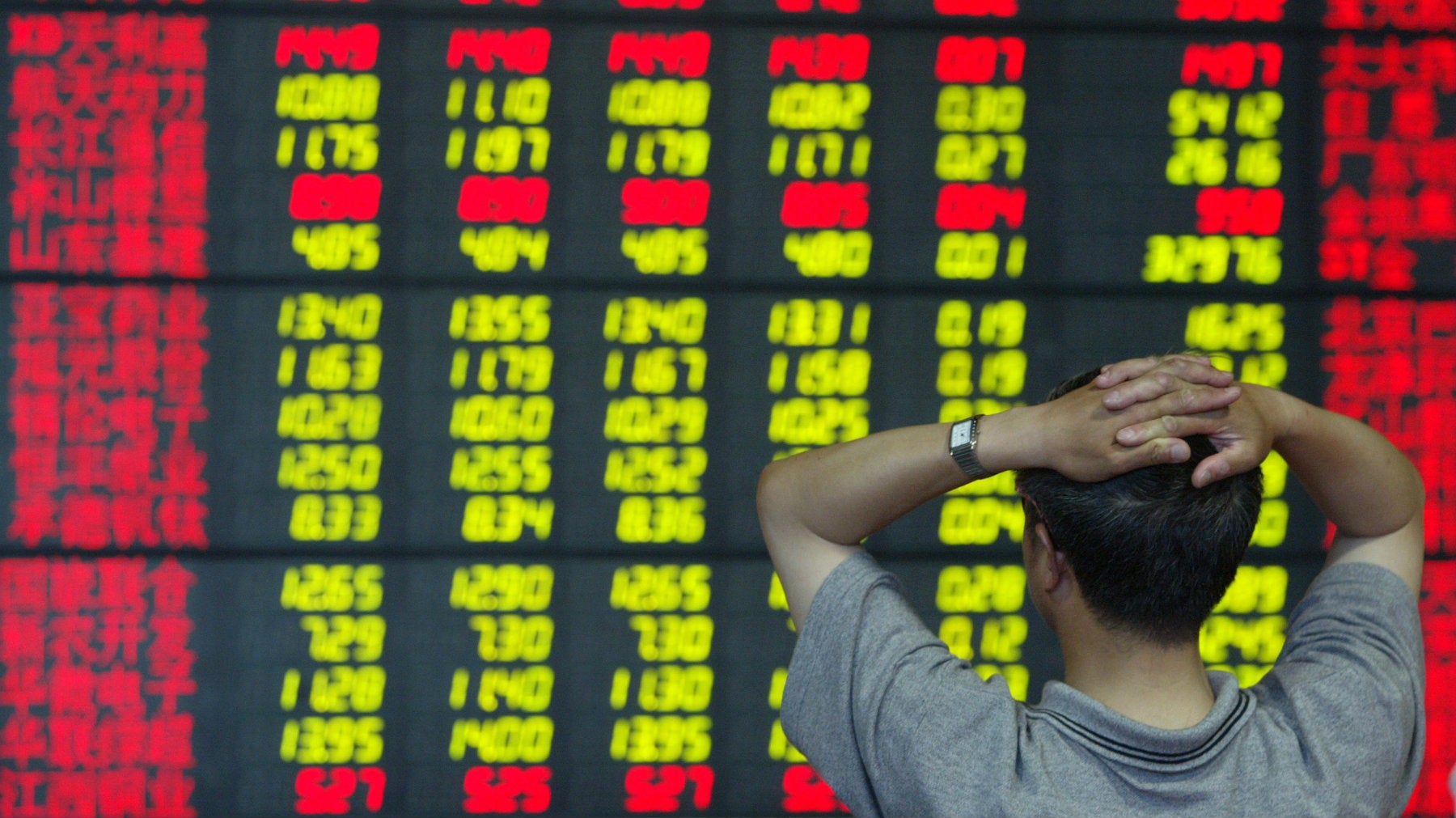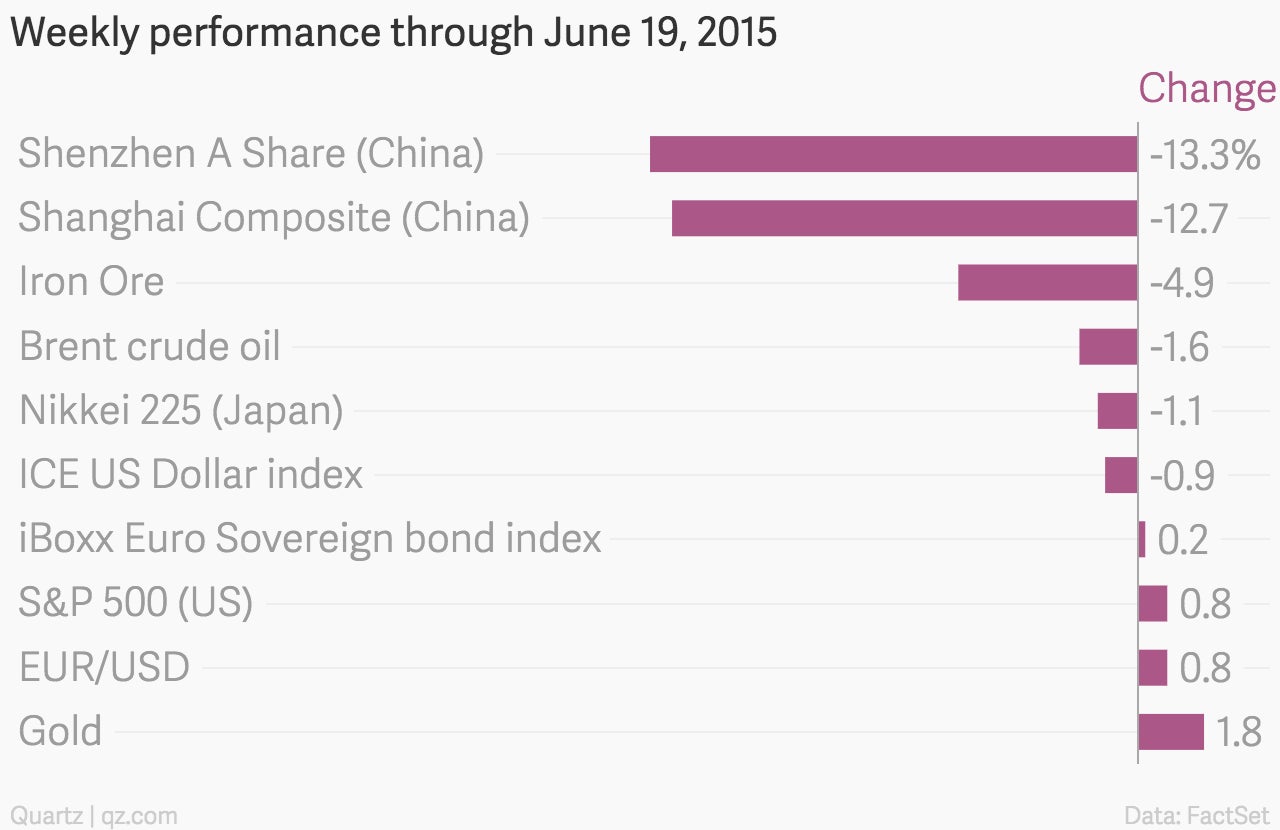China’s stock market fell hard this week—really hard
The Shanghai Composite and Shenzhen A Share stock markets had bad weeks. Really bad weeks. Both lost more than 10% of their market value, and each fell about 6% in Friday’s trading alone. The catalyst for this week’s volatility? Queaziness from abroad (paywall).


The Shanghai Composite and Shenzhen A Share stock markets had bad weeks. Really bad weeks. Both lost more than 10% of their market value, and each fell about 6% in Friday’s trading alone. The catalyst for this week’s volatility? Queaziness from abroad (paywall).
Bloomberg had a prescient story about the Chinese equity bubble two days ago (if you ignore that bubble chatter has been following the indices all year), and it highlighted many of the recurring themes that have been echoed over the past few months:
Fueled by record margin debt and unprecedented numbers of novice investors, China’s market capitalization has tripled in the past year to $9.8 trillion. At 84 times projected earnings, the average stock on mainland exchanges is now almost twice as expensive as it was when the benchmark Shanghai Composite Index peaked in October 2007.
But as Quartz’s Lily Kuo noted in a post that put the rough week in (charted) perspective, things were good while they lasted before the correction:
Chinese investors have been enjoying the longest bull market since the country first opened its bourses in 1990. Bloomberg reckons that China’s bull market has now lasted exactly 928 days, more more than five times the average lifespan of previous booms in the country.
Don’t weep too hard for the Chinese traders. Shenzhen stocks are are still up 94% on the year, and Shanghai’s main index is up 38%.
